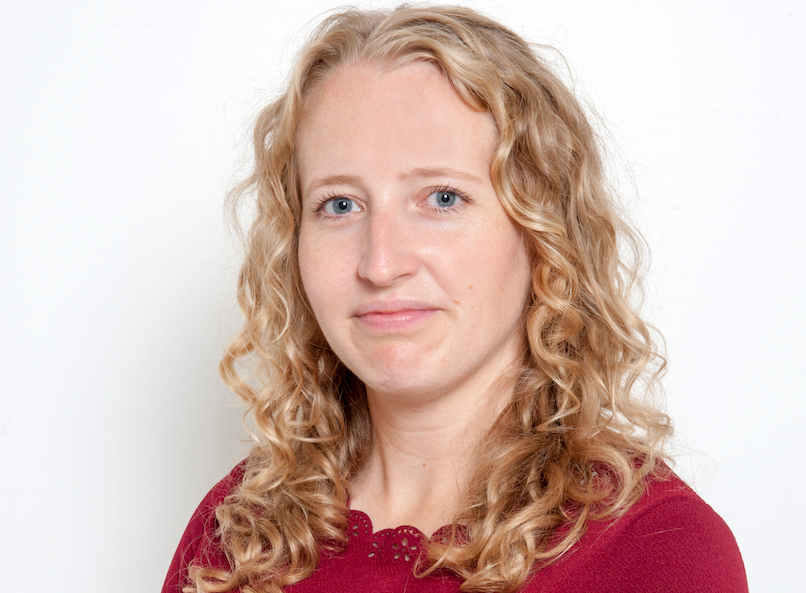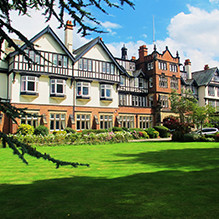Alumni Profile : Sarah Johnson
Alumni Profile: Old Girl, Sarah Johnson, Human Rights and Global Development Reporter at The Guardian, started life in Oman before coming to the UK aged 11 to join Harrogate Ladies’ College. She attended from 1996 – 2003 in Lancaster boarding house.
She tells us her story and gives tips for anyone looking to forge a career in journalism.

What was your first term at HLC like?
It was a tough first term at school. There were many news things to get used to in a UK school, having started my life in Oman. Some things I never fully understood – deportment girdles, for example! I’m pleased to hear that things have changed since then.
What were the best parts of your time at HLC?
The extra-curricular activities, definitely. House dramas, sport, music and public speaking activities meant there was always something to get involved in and this was a real plus to the school. The people I met were also a real highlight. I remain friends with a number of the girls I grew up with at school, including my closest friend who is now based in Hong Kong. Although we don’t get to see each other very often (exasperated even more by recent events), it’s as if nothing has changed as soon as we meet up.
Tell us about your journey from leaving school
I left school to study French and Spanish at Newcastle University. I had a fantastic time and joined the theatre society in my 2nd year and spent my 3rd year studying abroad in France and Ecuador. After University I wasn’t sure what I wanted to do, so I trained to teach English as a foreign language with plans to go and work in China, but a teacher helped secure me a position in Vietnam. It was an incredible experience, but I didn’t love the teaching role, so I tried freelancing. I started writing for the Vietnam equivalent of Time Out magazine where I quickly rose to Deputy Editor. I also wrote travel guides and did some editing for the English language version of one of the national newspapers. After two and a half years in Ho Chi Minh City, home was calling so I headed back to the UK.
On my return, I made the decision to study for an MA in Journalism. “Journalism was always there” with me, according to my Mother, so she wasn’t surprised by the decision. All of the major media were in London, so I looked at Universities in the Capital and secured a spot at City University. On completing my postgraduate degree I secured some shift work at the Daily Mail where I was working the 5pm – 2am shift from Thursday to Monday every week. Not great for the social life, and when I raised the idea of working some different hours it didn’t go down very well. Luckily, I had interviewed for a role at The Guardian, and it was around this time that I was approached to take up a one month role to cover for someone at the paper. That was 9 years ago.
Following my initial one month post, where I focused on writing about healthcare managers, I expanded the role, reporting on the NHS more broadly. As the years went by I wanted to start looking at the struggles people on the margins of society faced. I started highlighting the stories of people who were in desperate situations and I began covering social affairs. Then, back in 2019, I secured funding to spend a month in Brazil. I wrote a series of articles about people working in public services who were tackling social injustice in the country. My favourite piece was about a scheme that trained beauticians to recognise the signs of domestic violence.
Not long after my trip to Brazil, my role at the Guardian came to an end, but another job came up reporting on human rights and global development. It felt like the ideal next step.
Do you ever get affected by the stories you write?
I do get affected, yes. But I feel like I go into my reporting ‘mode’ to write the story – bringing things to light is my small way of helping.
What’s next for you?
As part of my role during the pandemic, I shared the stories and anecdotes of healthcare workers to raise awareness of the conditions they were working in and the challenges they were faced with, as well as some of the positive moments. I then got a book deal, so things have gone a bit bonkers!
When it’s possible, I’d love to report more from abroad in future. To bring global issues to life and tell people’s stories. That’s the hope.
What tips would you give to our current pupils looking towards a career in Journalism?
I’d always say to get as much experience as possible. Take every opportunity, speak to as many people in the field as possible and always listen to others – everyone has a story.
I wouldn’t necessarily advise studying for an undergraduate degree in Journalism, but do study something you love at University and then you can move to a postgraduate qualification in Journalism.
Don’t let anyone tell you you can’t do it.
Be nice to everyone and be respectful of everyone – you never know when you might need their help!
find out more about our alumni programme
